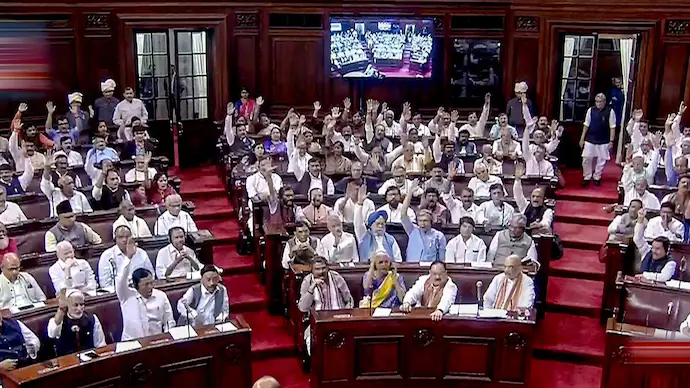The Delhi Services Bill, officially known as the Government of National Capital Territory of Delhi (Amendment) Bill, 2023, has been passed with a total of 131 votes in favour and 102 against in Rajya Sabha. The bill was passed on 7th August, four days after Lok Sabha cleared the account.
The bill aims to replace an existing ordinance that has caused conflicts between the Aam Aadmi Party, led by the Delhi CM Arvind Kejriwal and the Central Government.
As per the bill, the Election Commissioners shall be appointed by the President on the recommendation of a Selection Committee consisting of:
- The Prime Minister- chairperson
- The Leader of Opposition in the House of the People Member;
- A Union cabinet minister to be nominated by the Prime Minister- Member
Features of the Delhi Services Bill
- The Delhi Services Bill puts inquiries and suspensions of officials in Delhi under the central government’s control.
- The Lieutenant Government will have sole discretion over various matters, including recommendations from the National Capital Civil Service Authority and decisions related to the Delhi Legislative Assembly.
- The National Capital Civil Service Authority will comprise the Chief Secretary of Delhi, the Principal Home Secretary of Delhi and the Delhi Chief Minister.
Debate in Rajya Sabha
While introducing the Bill, Home Minister Amit Shah denied that it contradicts the Supreme Court’s judgment and said that the Court had recognized the power of the Parliament to make laws concerning services in Delhi. Mr Shah added that the Centre has the right to draft laws for all Union Territories. “So, services will also be included in this. Parliament has the right to amend and nullify the Acts passed by the Assembly,” he said and added that “the Congress was opposing the Act created by it to appease the Aam Aadmi Party (AAP). He said the real target of AAP is not the BJP but the Congress. It is clear from their electoral history.”
Debating the above point, senior Congress MP Abhishek Manu Singhvi said, “This Bill is completely unconstitutional. It is fundamentally anti-democratic. It is a frontal assault on the regional voice and the regional aspirations of the people of Delhi. It violates all principles of federalism, all norms of civil service accountability, and all models of Assembly-based democracy. It violates the basic structure.”
Taking a swing at Shah, who accused the AAP government of fighting with the Union government, Mr Kejriwal said: “Even if I fight, that is why people of Delhi have voted for me four times because they like the work that I am doing.”
The Bill will replace the Delhi ordinance brought on May 19, overriding an order by the apex court, which ruled that only Delhi’s elected government has authority over civil servants. The court also ruled that except for issues linked to land, police, and public order, the lieutenant governor has “no independent decision-making powers” under the constitution.
Criticism of Delhi Services Bill
- Opposition leaders, including Congress MP Shashi Tharoor, argue that the bill undermines the separation of powers and federalism.
- Tharoor claims that the bill is an assault on democratic history and the federal spirit.
- Other leaders assert that the bill seeks to diminish the powers of an elected government.
Government’s Response to Delhi Services Bill
The Government of India has defended the Delhi Services Bill, 2023, saying that it is necessary to ensure the smooth functioning of the administration in Delhi. The government has also said that the bill does not remove any powers from the Delhi government but only clarifies the existing arrangements.
AAP has argued that the proposed law will set a precedent that can be used to strip any Opposition-ruled state of its power of governance, sidelining the elected government.
Read more about the discussion at thewire.in
– Written by Stuti Shah, Edited by Harsha Chhawchharia












